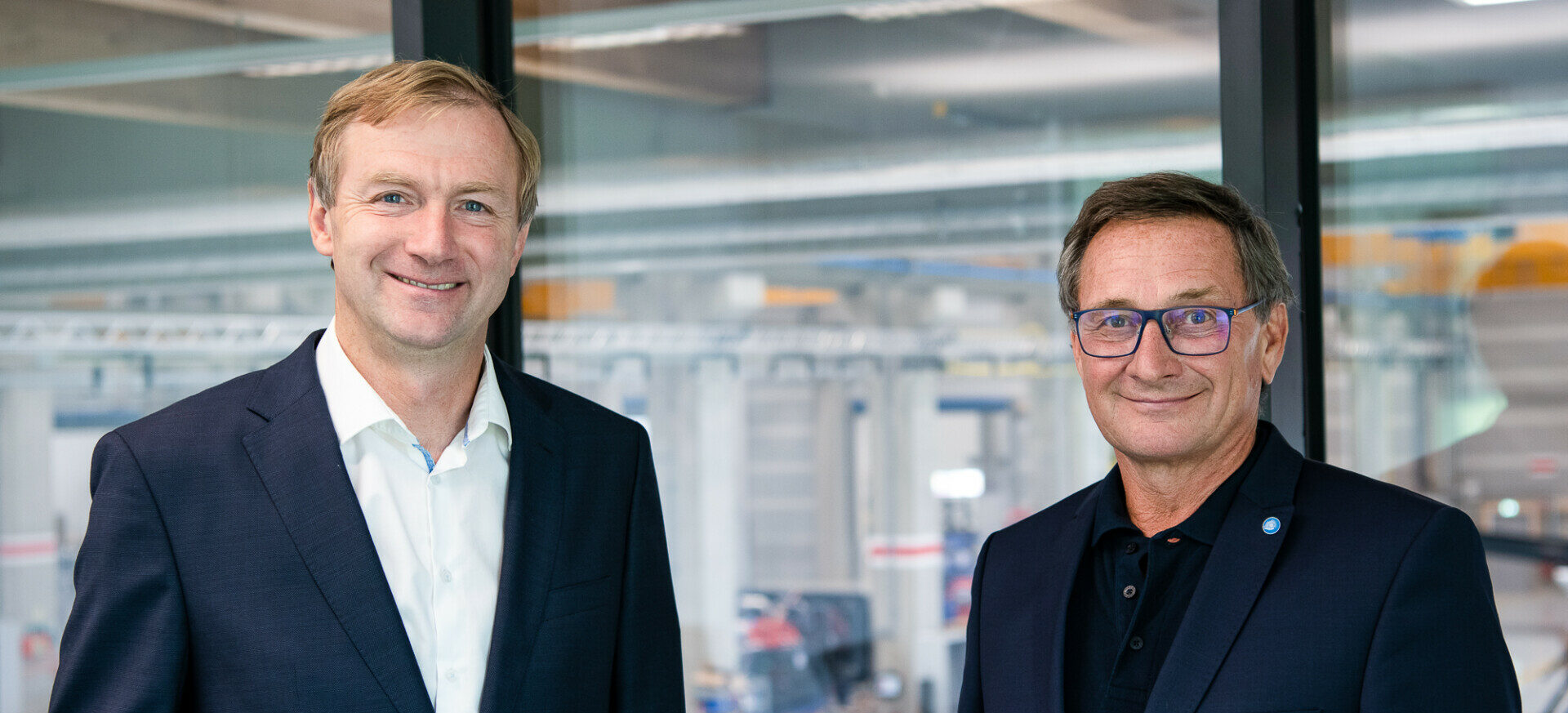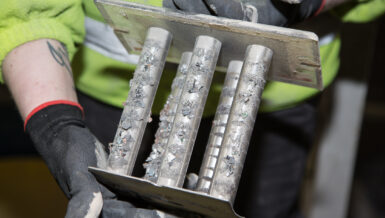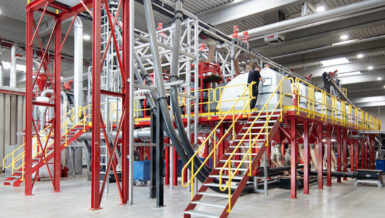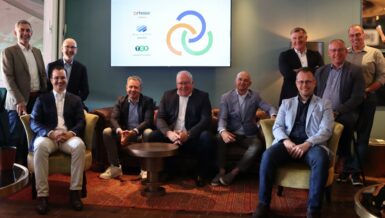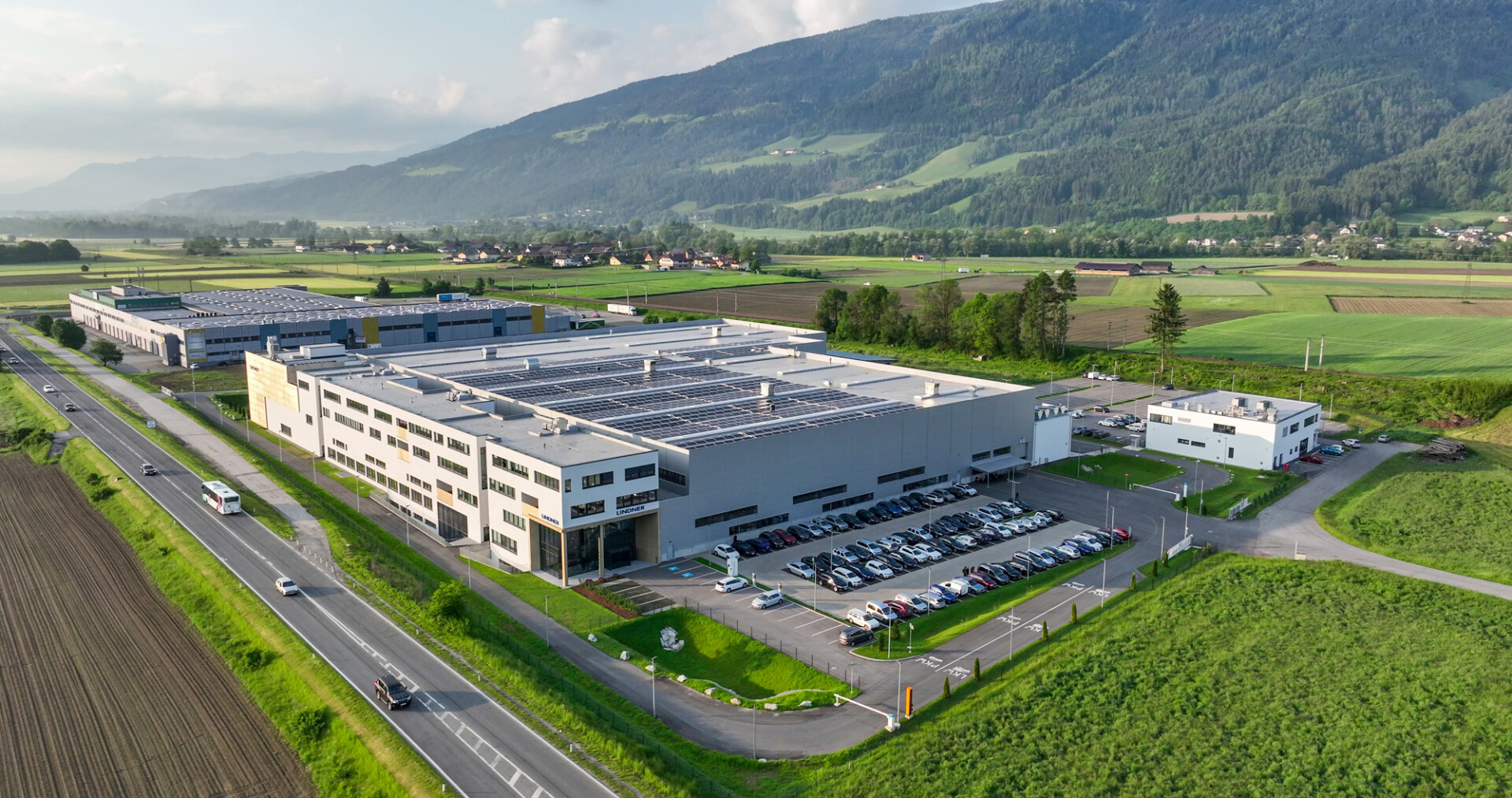The goal is to optimize processes quantitatively, qualitatively, and with more efficient energy use, in order to promote plastics recycling in line with the circular economy model. Dutch and foreign clients are already showing great interest in the testing options. “With its modular design, Lindner Washtech’s plastic washing system, to be installed in mid-2022, will make a significant contribution to our research and the optimization of various plastic streams,” says Martine Brandsma, director of the NTCP.
Tucked away in Friesland, a northern Dutch province, lies the 50.000-strong community of Heerenveen. Since 2018, it has also been home to the National Test center Circular Plastics (NTCP). It is Europe’s first independent testing and research center which can analyze heterogeneous plastic waste streams down to the smallest part. Rather than relying on usual test set-ups which are commonly used in research institutions, it is instead equipped with state-of-the-art facilities: raw, industrial, noisy, and … using real waste.
Playing with the Settings
NTCP’s concept is actually quite simple: the more plastic that enters the correct sorting stream and then takes the correct route to the relevant mechanical and chemical recyclers, the higher the percentage of plastics that remain in the loop. Though this may sound simple in theory, the reality is more complex. According to Brandsma, “It’s like a chess game, played on seven boards all at once – and chess moves are being made on each one.” When one applies this to recycling, this means that everyone who takes part in the process – be it the collectors, sorters, or recyclers – is in a constant state of development. This means that the system too is constantly changing. In order to examine individual or larger steps in the process, the NTCP has a 25 by 20 meter long, and 9 meters high, industrial sorting system. This simulates the entire sorting process (up to 2 t/h). The modular design allows for settings to be adapted to different testing requirements, which can then be analyzed in detail. In this way, one can also test how different sorting techniques interact.
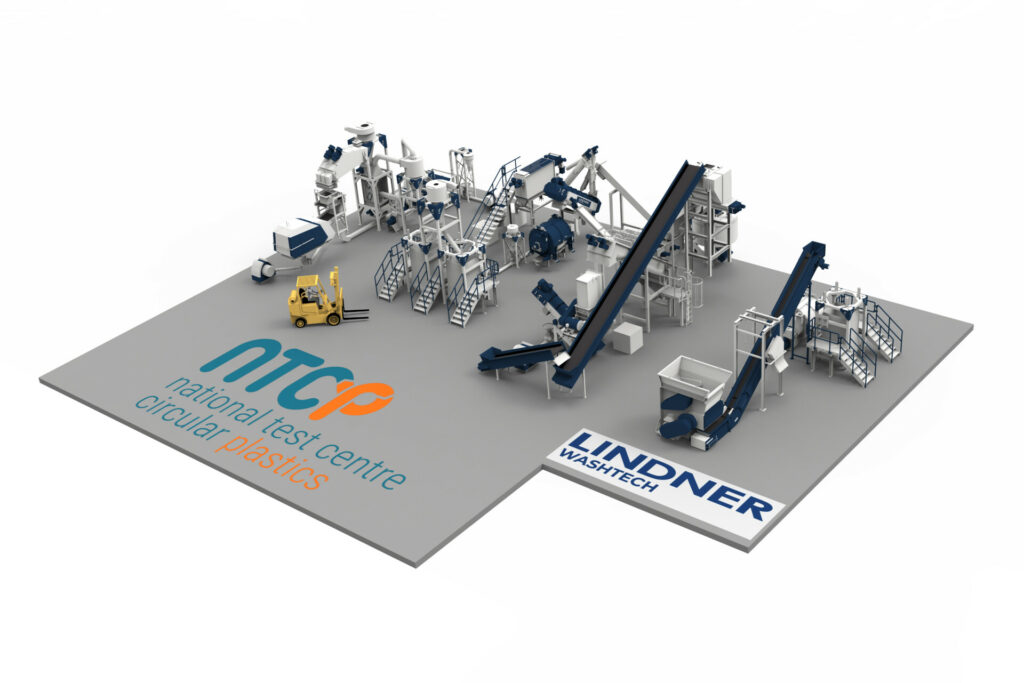
A New Washing System
NTCP’s current sorting system takes up half of the thousand square meters of available production space. The other half is reserved for a new washing system, which will be commissioned from and installed by the plastic recycling specialist Lindner Washtech in August 2022. Lindner Washtech’s modular system allows for each individual step of the washing process to be examined and quantified in detail. Freek Van Rhijn, technical director of the NTCP says, “Soon we will be able to simulate and optimize the entire washing process for all materials. From shredding, dry washing, cold and hot washing, density separation, mechanical and thermal drying, all the way to separating with a flake sorter. We can also focus on the detergents required and the environmental impact of using more or less water. How does washing by five or ten degrees less affect energy consumption? What ends up in the wastewater and how much does it cost to dispose of? With the new washing system, we can examine every single step, from sorting all the way to the final clean plastic flake.”
For several months, Van Rhijn has worked closely with Lindner Washtech’s engineers to develop the new plastic washing system. Harald Hoffmann, the firm’s Managing Director from Großbottwar (Germany), is happy to actively help shape this flagship project. He is convinced that the testing system as a whole will have a huge impact on the recycling industry and is a major leap forward. “The modular system will soon make it possible for different types of plastic to undergo different washing tests. This is made more feasible as the modules can be independently integrated into the process. In addition, the washing modules can be separately adapted to the requirements of each kind of plastic and its degree of contamination. This flexibility creates multiple opportunities for process optimization at every step of the way while ensuring high-quality recycled material. This kind of research and testing not only actively contributes to recycling profitability, but it also increases the rate of recycling and environmental protection,” says Hoffmann.
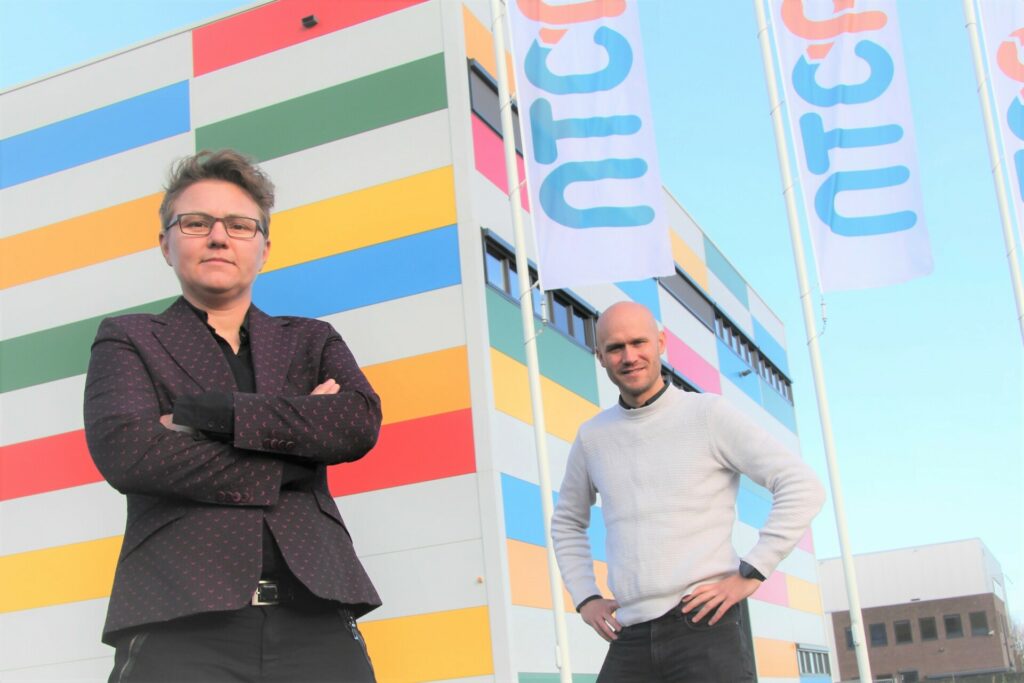
In addition to supplying the complex washing system, made up of flexible and highly specialized components, Lindner Washtech is also including a universal plastic shredder from its Antares series, as well as a wet granulator. The washing process can be minutely adapted through its different components to suit any kind of input material and its varying degrees of contamination. To this end, a dry cleaner, pre-washer, friction washer, or various hot-wash components are also available. The client can choose from various options when it comes to material separation and drying – which can be chosen to develop and design the optimal process for the material at hand. The NTCP system will be equipped with a mechanical dryer, a step dryer, as well as thermal drying specifically for plastic film.
Independent Advice
Since the NTCP is an independent, not-for-profit organization, it reinvests all its profits and equally addresses different organizations and stakeholders within the circular plastic recycling chain. Many national and international companies have already expressed an interest in collaborations and partnerships. Freek van Rhijn, who came on board as technical director in October 2019, is not surprised that NTCP has logged so many orders since its inception: “When people come here, they can’t believe their eyes. They may have imagined a lab with a few small machines, but this is a real industrial plant. Everyone we speak to sees the benefits of operating at this scale.” Orders have come in from a variety of large and small firms, including sorters, recyclers, brand owners, retailers, packers, and other stakeholders in the plastic recycling industry. These, alongside international brands, have all approached the NTCP with research and testing requests.
Lindner Washtech also intends to use this facility to further develop its washing components and to test prototypes. “In the future, we want to make the most of the NTCP’s testing possibilities for our own research and development. We will also ensure that our latest innovations are made available to the NTCP for test runs. Ultimately, the entire plastics industry benefits from testing facilities of this magnitude,” says Georg Krenn, Technical Director at Lindner Washtech.
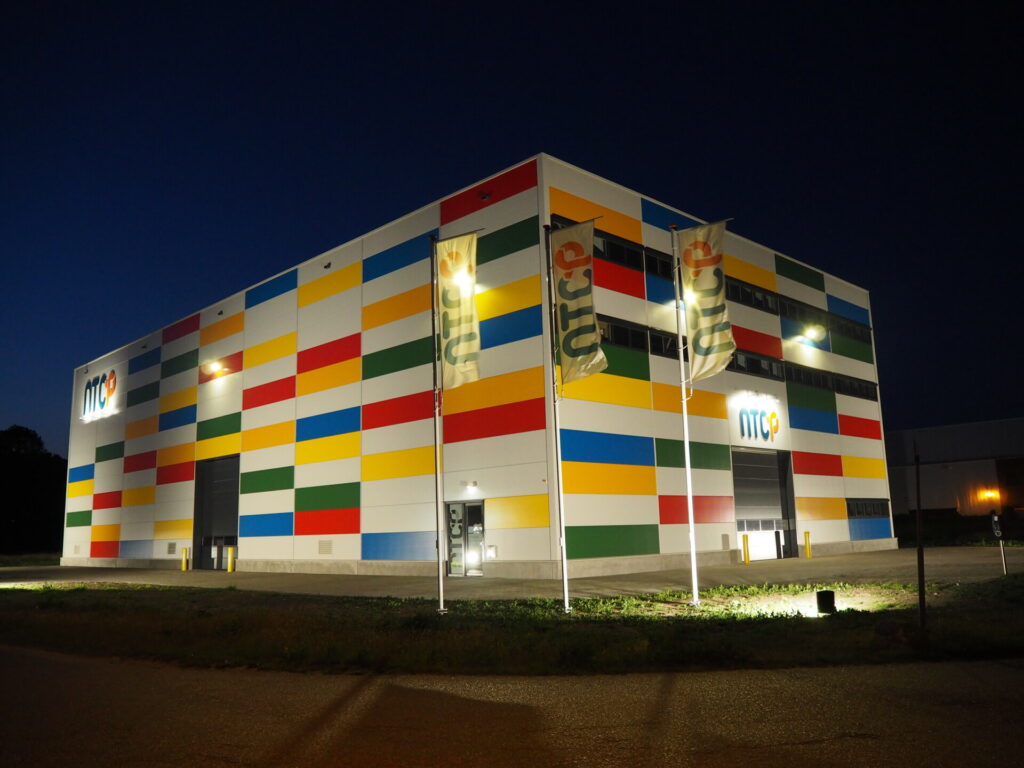
Preferred Testing and Research Partner
The NTCP will continue on its path to achieving the firm goal of increasing the amount of recycled material and accelerating innovation across recycling chains. Director Martine Brandsma even foresees sustainable plastic playing a prominent role across Europe. “We have the ambition to be the preferred partner for testing and research in the field of household waste streams. We are already eighty percent on track to reach our target for 2022. In just a short time, we’ve already been recognized as an independent partner, with our results being confirmed and accepted on a national and international level. On the one hand, this shows that there is an enormous need for our services. On the other hand, it is a confirmation that we have set up our business model successfully and our projects are achieving great results. We’re just a small team here at NTCP, so that’s something we are very proud of.”



